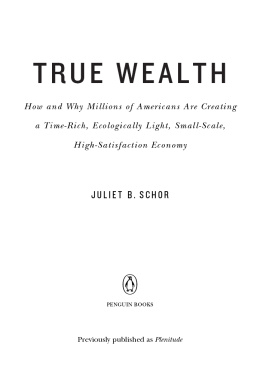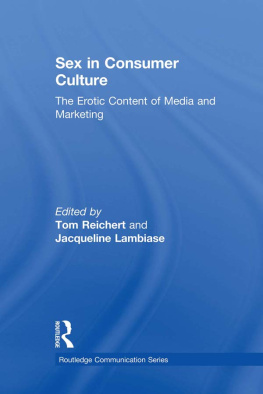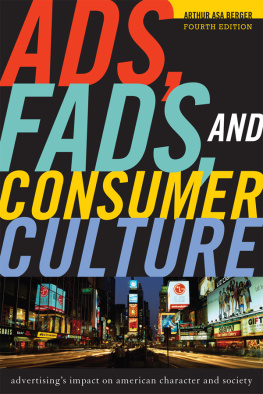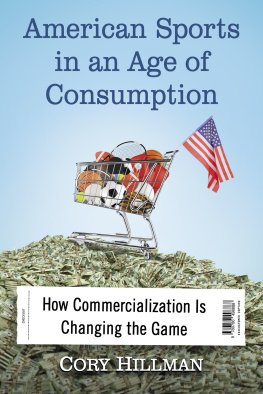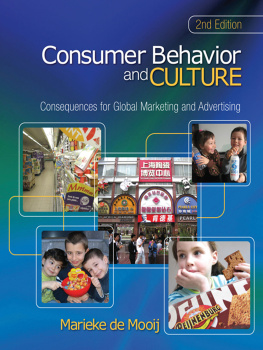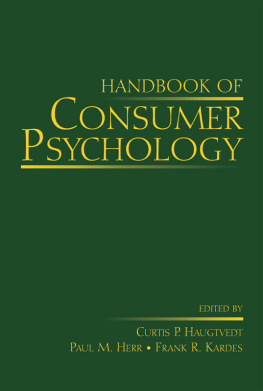Thank you for downloading this Scribner eBook.
Join our mailing list and get updates on new releases, deals, bonus content and other great books from Scribner and Simon & Schuster.
C LICK H ERE T O S IGN U P
or visit us online to sign up at
eBookNews.SimonandSchuster.com
We hope you enjoyed reading this Scribner eBook.
Join our mailing list and get updates on new releases, deals, bonus content and other great books from Scribner and Simon & Schuster.
C LICK H ERE T O S IGN U P
or visit us online to sign up at
eBookNews.SimonandSchuster.com
Schors sharply intelligent Born to Buy ... sheds light on how parents are demonized by anti-adult ads, and how parents have shifted from being gatekeepers who monitor their childrens purchases to having what one marketer calls an unmanned tollbooth approach to their childrens spending and their exposure to media.
The New York Times Book Review
We worry about so many dangers to our childrendrugs, perverts, bulliesbut seldom notice the biggest menace of all: the multibillion-dollar marketing effort aimed at turning the kids into oversexed, status-obsessed, attention-deficient little consumers. Like her earlier books, Juliet Schors Born to Buy is a brilliant expos and call to action.
Barbara Ehrenreich, author of Nickel and Dimed
Juliet Schor... exposes the multibillion-dollar advertising schemes aimed at Americas kids.
Time
Schor presents a disturbing picture of how childrens sense of self is diminished by this barrage of ads. They begin to believe they are what they own.
USA Today
Juliet Schor is a human laser beam. Her careful research and brilliant analysis are presented in lucid prose. Plato defined education as teaching our children to find pleasure in the right things. Most parents do their best, but they are fighting a culture that educates our children to value all the wrong things. Children are suffering mentally, physically, and spiritually. Schors book can put on us a path toward once again protecting our children. This may be the most important book of 2004.
Mary Pipher, author of Reviving Ophelia and Letters to a Young Therapist
In her artfully argued, important expos, Born to Buy, Schor draws on interviews with marketers, academic research, and her own survey of Massachusetts fifth and sixth graders. The book is a worthy capstone to the consumer trilogy that Schor began with her best-selling The Overworked American (1991) and continued in The Overspent American (1998).
Businessweek
Schors book sounds a dire warning to parents about the pervasiveness and sneakiness of marketing to children, turning them into little I want machines. Her outrage is a needed voice amid the din of kiddie commercialism.
Pittsburgh Post-Gazette
There must be a special circle of hell designed for those who came up with the notion of marketing to young kids, and if so, Juliet Schor is its Dante. This is a tremendous book, in the tradition of Fast Food Nation.
Bill McKibben, author of Enough: Staying Human in an Engineered Age
What a fascinating and mobilizing book! No mother or father intends to turn over child rearing to the consumer culture, but the stress and speed of life wear down their resolve, making television, toys, electronics, and branding a kind of shadow parent that literally spoils our children. Juliet Schor gives us ample evidence of the costto our children and societyof this drift into corporation-raised kids. Born to Buy will inspire anyone concerned with the next generation.
Vicki Robin, coauthor of Your Money or Your Life: Transforming Your Relationship with Money and Achieving Financial Independence
This extraordinarily well-researched book provides abundant evidence for commercialization of childhood in our society and offers the first hard research data on the negative effects of turning children into consumers.
The Boston Globe
Juliet Schor has established herself as a sharp observer and critic of American commercialism. In Born to Buy, this social analyst and concerned mother turns her attention to marketing for children, combining observation in the advertising industry, interviews in a Boston suburb, and close study of merchandising methods. Readers need not agree with all her arguments to learn plenty about how relations between children and merchandising media are changing, and what threats to childrens well-being those changes are producing.
Viviana Zelizer, author of Pricing the Priceless Child and The Social Meaning of Money
Born to Buy is so grounded in appalling data about both kids and advertising companies, it has the effect of making even the most TV-and-advertising-wary parents among us realize that we havent been half vigilant enough.
Amy Bloom, O, The Oprah Magazine
Born to Buy is an eye-opener. It illuminates marketers unrelenting exploitation of our youth; the well-being of children has been made secondary to maximizing corporate profit. This book is certain to shake us out of our complacency. I highly recommend it.
Alvin F. Poussaint, MD, professor of psychiatry, Harvard Medical School and Judge Baker Childrens Center, Boston
This brilliant, informative, and deeply important book tells us what the advertisers dont: the more advertising children see and hear, the more likely they are to be depressed and anxious and to suffer family conflict. The American dream isnt something we buy, Schor wisely tells us; its something we make and can, if broken, repair. A book that will start a revolution...
Arlie Russell Hochschild, author of The Commercialization of Intimate Life: Notes from Home and Work and The Time Bind: When Work Becomes Home and Home Becomes Work
Also by Juliet B. Schor
The Overworked American
The Overspent American

SCRIBNER
1230 Avenue of the Americas
New York, NY 10020
www.SimonandSchuster.com
Copyright 2004 by Juliet Schor
All rights reserved, including the right of reproduction in whole or in part in any form.
SCRIBNER and design are trademarks of Macmillan Library Reference USA, Inc., used under license by Simon & Schuster, the publisher of this work.
DESIGNED BY ERICH HOBBING
Text set in Bembo
The Library of Congress Cataloging-in-Publication Data
Schor, Juliet.
Born to buy: the commercialized child and the new consumer culture/Juliet B. Schor.
p. cm.
Includes bibliographical references and index.
1. Child consumersUnited States. 2. Young consumersUnited States. 3. Advertising and childrenUnited States. 4. MaterialismSocial aspectsUnited States. 5. Child developmentUnited States. 6. ChildrenUnited StatesSocial conditions. 7. Child welfareUnited States. I. Title: Marketing and the transformation of childhood and culture. II. Title.
HF5415.33.U6S355 2004
305.23'0973dc22
2004045411
ISBN-13: 978-0-684-87055-7
ISBN-10: 0-684-87055-X
ISBN-13: 978-0-684-87056-4 (Pbk)
ISBN-10: 0-684-87056-8 (Pbk)
ISBN-13: 978-1-4391-3090-2 (eBook)
For Krishna and Sulakshana, my wonderful children
Contents
Tables and Figures
TABLES
FIGURES
Authors Note
This book relies on two types of primary research. The first is a qualitative investigation of advertising and marketing to children, conducted through interviews and participant observation in the advertising industry. The second is survey research and data analysis. I want to say a word about each.
My industry research began in the summer of 2001, when I participated in the Visiting Professor Exchange program run by the Advertising Education Foundation. The AEF arranged for me to visit a number of advertising agencies, including a longer stay at one of them. During this time, I heard about twenty presentations on a variety of topics. My industry host also put together approximately fifteen private meetings with key individuals in the field of childrens marketing. During those meetings, I conducted informal interviews and discussions and took notes. I also spent time with a group of professionals who were working on childrens products, observing what goes on in an agency. In the eighteen months following my fellowship, I broadened my contacts and conducted approximately twenty-five more interviews, which ranged in length from an hour to five or six hours. I also had the opportunity to shadow researchers at a small firm, observing meetings and focus groups. I went to two industry conferences and talked to as many people as I could. I read trade books, newsletters, magazines, and other publications. Although the bulk of my work was within the industry, over the years I have been doing this research, I have also gotten to know many of the nations leading critics of marketing to children, attending meetings and conferences and exchanging information with them.
Next page

